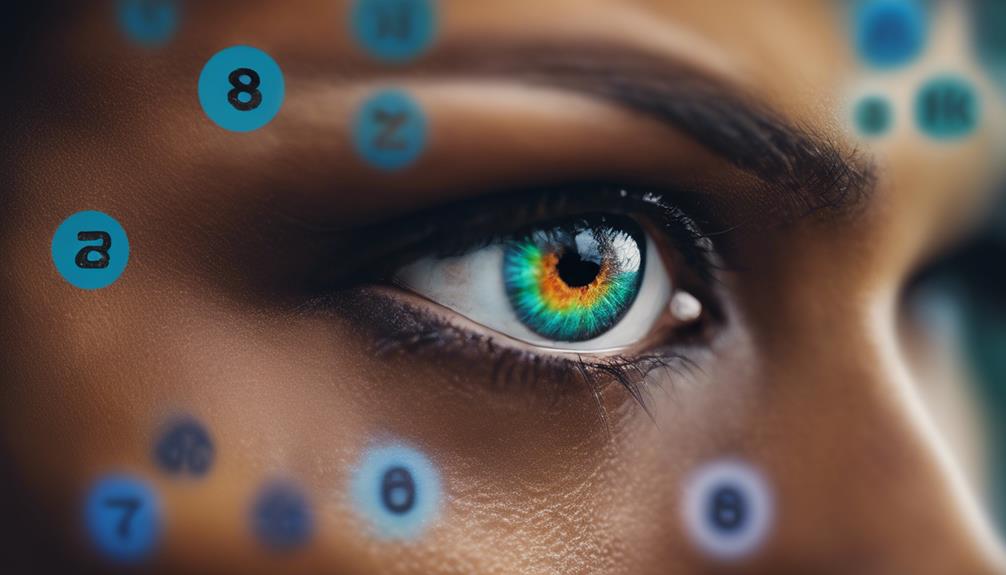AI has become a trusted partner for young shoppers worldwide, helping you discover and decide on products more confidently. Around 66% of weekly online shoppers use AI tools, and by 2025, nearly 60% of all consumers will rely on AI during their shopping trips. Younger generations especially trust AI over friends for advice, and it plays a key role in aligning choices with your values. Want to learn more about how AI is shaping your shopping experience?

As digital natives, today’s youth increasingly rely on AI to guide their buying decisions, transforming the way they shop online. You might notice that more of your friends and peers turn to AI assistants before making a purchase, and you’re likely part of this trend yourself. In fact, about 66% of people who shop online more than once a week use AI tools to help decide what to buy. This isn’t just a passing phase — by 2025, nearly 60% of all consumers report using AI during their shopping trips, showing how deeply AI has integrated into everyday decision-making. You see it everywhere: from product recommendations to personalized ads, AI shapes your shopping experience more than ever before. AI’s growing presence is also reflected in how product pages are evolving to support side-by-side evaluations, highlight differentiators, and incorporate diverse reviews, making AI-powered comparisons more informative and trustworthy. Gender differences also emerge in AI usage. Around 57% of men use AI tools for shopping, compared to 39% of women. Yet, regardless of gender, AI’s influence is expanding. Many frequent AI users rely on platforms like ChatGPT to discover new products, with roughly 34% turning to it specifically for exploration rather than simple comparison shopping. AI is no longer just a novelty; it’s a standard tool that most online shoppers consider essential. Your curiosity about new technology fuels further adoption, creating a cycle where AI becomes more sophisticated and personalized. Trust plays a fundamental role in how you and your peers approach AI. Nearly half of younger consumers trust AI more than friends when it comes to advice on what to wear. This shows a core shift in confidence — you view AI as a reliable guide, often more dependable than human opinions. Behavioral science research indicates that many young shoppers offload the mental burden of choosing products onto AI, using it as an augmented decision-maker. You see AI as a trusted advisor and filter, often the first point of contact to narrow down endless options. Its ability to personalize recommendations and cut through choice overload makes it especially appealing, reinforcing your trust in its suggestions. For Gen Z, online shopping is mainly mobile, with 96% using smartphones monthly for e-commerce. They’re driven by values, refusing to buy from companies with poor environmental records, and AI helps identify brands that align with their ethics. They blend online and in-store shopping seamlessly, leveraging AI-powered platforms to discover products that reflect their cultural and environmental concerns. AI helps navigate complex digital marketplaces, offering personalized, ethical, and culturally relevant options, making it an integral part of their shopping habits. Meanwhile, Generation Alpha is growing up immersed in AI-enabled digital environments like TikTok, YouTube, and gaming. Over 30% aspire to careers that create social or environmental impact, which influences their buying choices. Their discovery platforms rely heavily on AI-curated content, and parental influence is balanced with peer and AI input, creating complex decision matrices. Additionally, the ability of AI to provide personalized recommendations enhances the shopping experience by catering to individual preferences. Brand loyalty and impulse buying among Gen Alpha are shaped by emotional drivers enhanced by AI’s real-time customization. Overall, AI’s reach continues to grow, with over 1.7 billion people worldwide engaging in AI-driven shopping activities, confirming its essential role in shaping the future of youth consumer behavior.
Frequently Asked Questions
How Secure Is My Personal Data When Using AI for Shopping?
Your personal data’s security when using AI for shopping isn’t guaranteed. While some platforms implement privacy safeguards like data anonymization and transparent policies, many still face risks from breaches, shadow AI, and insider threats. Be cautious about how your data is collected, shared, and stored. Always review privacy policies, use secure connections, and prefer platforms with strong governance and regulatory oversight to better protect your information.
Can AI Truly Understand Individual Preferences Accurately?
AI can understand your preferences better than you might realize, but it’s not perfect—like trying to read your mind through a fog. It relies on data and patterns, which means it captures broad trends rather than every nuance. Your unique tastes and emotional subtleties often escape its grasp. So, while AI gets closer every day, it still can’t fully grasp the depth of who you are, no matter how advanced it seems.
What Are the Ethical Concerns of AI Influencing Youth Buying Habits?
You should be aware that AI influencing youth buying habits raises serious ethical concerns. It can exploit their vulnerability through targeted advertising, manipulate decisions without full understanding, and use sensitive data like biometric info without proper consent. This risks psychological harm, undermines autonomy, and can lead to emotional distress. Ensuring transparency, respecting privacy, and avoiding manipulative tactics are essential to protect young consumers from unethical AI practices.
How Does AI Personalization Affect Consumer Choice Diversity?
AI personalization affects your consumer choices by tailoring recommendations based on your behavior and preferences, which can limit the variety of products you consider. While it helps you find relevant items faster, it may also narrow your exposure to diverse options, making your choices feel more homogeneous. However, when balanced well, AI can introduce you to new products aligned with your interests, enhancing your overall shopping experience without overly restricting your options.
Are There Any Costs Associated With AI Shopping Assistance?
You might not pay directly for AI shopping assistance since most are free to use, but there are costs involved. Retailers spend on developing, maintaining, and updating these tools, which can influence product prices and your shopping experience. Additionally, sharing personal data for personalization poses privacy risks. While you benefit from faster, tailored shopping, be aware that indirect costs, like data security and potential price changes, could impact your overall costs.
Conclusion
As you navigate your next purchase, remember how AI’s influence quietly guides your choices, shaping your world in ways you might not even notice. Imagine the unseen algorithms working behind the scenes, predicting what you’ll love before you even realize it. Will this digital confidence lead you to new, exciting discoveries or steer you into uncharted territory? One thing’s certain—your journey with AI has only just begun, and the future holds secrets waiting to be uncovered.









